
Henry James Byron was a prolific English dramatist, as well as an editor, journalist, director, theatre manager, novelist and actor.

Sir Francis Cowley Burnand, usually known as F. C. Burnand, was an English comic writer and prolific playwright, best known today as the librettist of Arthur Sullivan's opera Cox and Box.
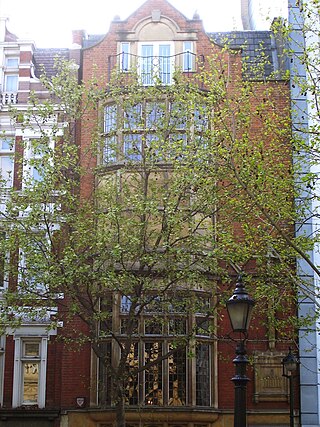
Beefsteak Club is the name or nickname of several 18th- and 19th-century male dining clubs in Britain and Australia that celebrated the beefsteak as a symbol of patriotic and often Whig concepts of liberty and prosperity.

The Gaiety Theatre was a West End theatre in London, located on Aldwych at the eastern end of the Strand. The theatre was first established as the Strand Musick Hall in 1864 on the former site of the Lyceum Theatre. In 1868, it became known as the Gaiety Theatre and was, at first, known for music hall and then for musical burlesque, pantomime and operetta performances. From 1868 to the 1890s, it had a major influence on the development of modern musical comedy.
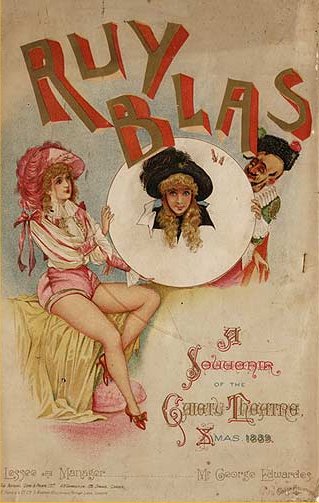
Victorian burlesque, sometimes known as travesty or extravaganza, is a genre of theatrical entertainment that was popular in Victorian England and in the New York theatre of the mid-19th century. It is a form of parody in which a well-known opera or piece of classical theatre or ballet is adapted into a broad comic play, usually a musical play, usually risqué in style, mocking the theatrical and musical conventions and styles of the original work, and often quoting or pastiching text or music from the original work. Victorian burlesque is one of several forms of burlesque.

Cinder Ellen up too Late is a musical burlesque written by Frederick Hobson Leslie and W. T. Vincent, with music arranged by Meyer Lutz from compositions by Lionel Monckton, Sidney Jones, Walter Slaughter, Osmond Carr, Scott Gatti, Jacobi, Robertson, and Leopold Wenzel. Additional lyrics were written by Basil Hood. The show was a burlesque of the well-known pantomime and fairy tale, Cinderella.
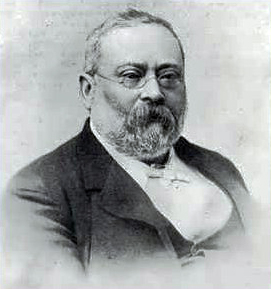
Wilhelm Meyer Lutz was a German-born British composer and conductor who is best known for light music, musical theatre and burlesques of well-known works.
This is a selected list of W. S. Gilbert's works, including all that have their own Wikipedia articles. For a complete list of Gilbert's dramatic works, see List of W. S. Gilbert dramatic works.
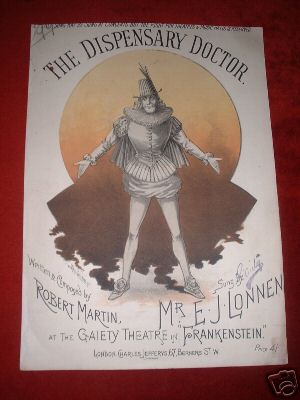
Frankenstein, or The Vampire's Victim is a musical burlesque in three acts written by Richard Henry. The music was composed by Meyer Lutz. The piece is a burlesque loosely based on the 1818 Mary Shelley novel Frankenstein; or, The Modern Prometheus and the Adelphi Theatre drama based on the novel.

Galatea, or Pygmalion Re-Versed is a musical burlesque that parodies the Pygmalion legend, and specifically W. S. Gilbert's 1871 play Pygmalion and Galatea. The libretto was written by Henry Pottinger Stephens and W. Webster. The score was composed by Wilhelm Meyer Lutz.

Ellen "Nellie" Farren was an English actress and singer best known for her roles as the "principal boy" in musical burlesques at the Gaiety Theatre in London.

John Hollingshead was an English theatrical impresario, journalist and writer during the latter half of the 19th century. After a journalism career, Hollingshead managed the Alhambra Theatre and was later the first manager of the Gaiety Theatre, London. Hollingshead also wrote several books during his life.
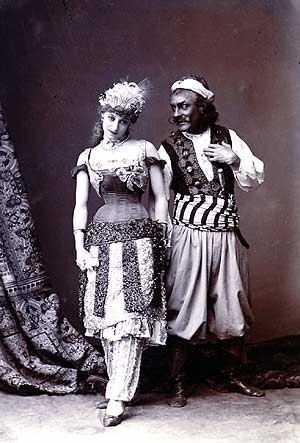
Robert Reece was a British comic playwright and librettist active in the Victorian era. He wrote many successful musical burlesques, comic operas, farces and adaptations from the French, including the English-language adaptation of the operetta Les cloches de Corneville, which became the longest-running piece of musical theatre in history up to that time. He sometimes collaborated with Henry Brougham Farnie or others.

Robert the Devil, or The Nun, the Dun, and the Son of a Gun is an operatic parody by W. S. Gilbert of Giacomo Meyerbeer's grand opera Robert le diable, which was named after, but bears little resemblance to, the medieval French legend of the same name. Gilbert set new lyrics to tunes by Meyerbeer, Bellini, Offenbach and others.

Carmen up to Data is a musical burlesque with a score written by Meyer Lutz. Set in Seville, the piece was a spoof of Bizet's 1875 opera Carmen. The libretto was written by G. R. Sims and Henry Pettitt.
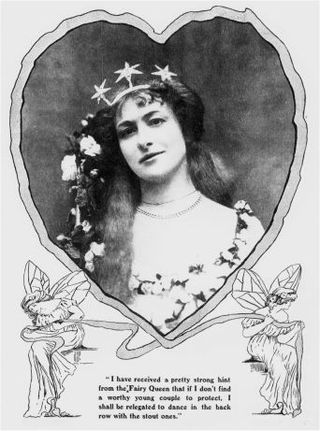
Harlequin and the Fairy's Dilemma, retitled The Fairy's Dilemma shortly after the play opened, is a play in two acts by W. S. Gilbert that parodies the harlequinade that concluded 19th-century pantomimes.

An Old Score is an 1869 three-act comedy-drama written by English dramatist W. S. Gilbert based partly on his 1867 short story, Diamonds, and partly on episodes in the lives of William Dargan, an Irish engineer and railway contractor, and John Sadleir, a banker who committed suicide. It was written before any of his Savoy Operas with Arthur Sullivan. Despite an encouraging review in The Times, the piece was a failure. It was revived in 1872 and rewritten as Quits, but it fared no better.

Frederick John D'Auban was an English dancer, choreographer and actor of the Victorian and Edwardian eras. Famous during his lifetime as the ballet-master at the Theatre Royal, Drury Lane, he is best remembered as the choreographer of many of the Gilbert and Sullivan operas.

Harlequin Cock Robin and Jenny Wren; or, Fortunatus and the Water of Life, the Three Bears, the Three Gifts, the Three Wishes, and the Little Man who Woo'd the Little Maid was a pantomime written by W. S. Gilbert. As with many pantomimes of the Victorian era, the piece consisted of a story involving evil spirits, young lovers and "transformation" scenes, followed by a harlequinade.
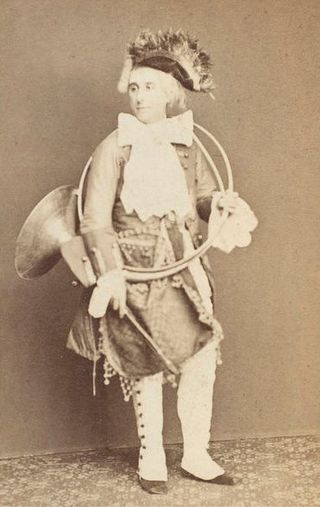
Robert Soutar was an English actor, comedian, stage manager, writer and director for the theatre. He began his career as a journalist but soon moved into acting. In 1867, he married actress Nellie Farren, and the next year, the two joined the company at the Gaiety Theatre in London. There, he stage managed and wrote for the theatre in addition to acting. His wife became well known for her roles as the "principal boy" in musical burlesques at the theatre. Soutar also directed plays and wrote pantomimes and other pieces. His son was the actor and singer Joseph Farren Soutar.




















